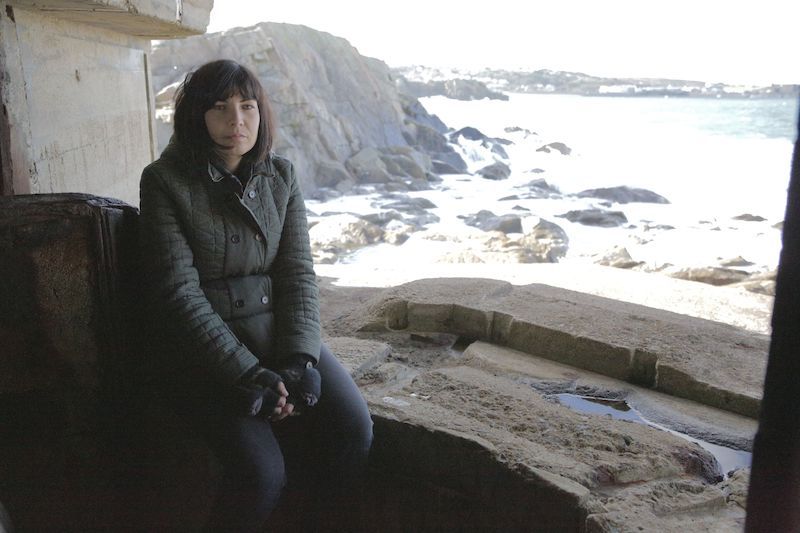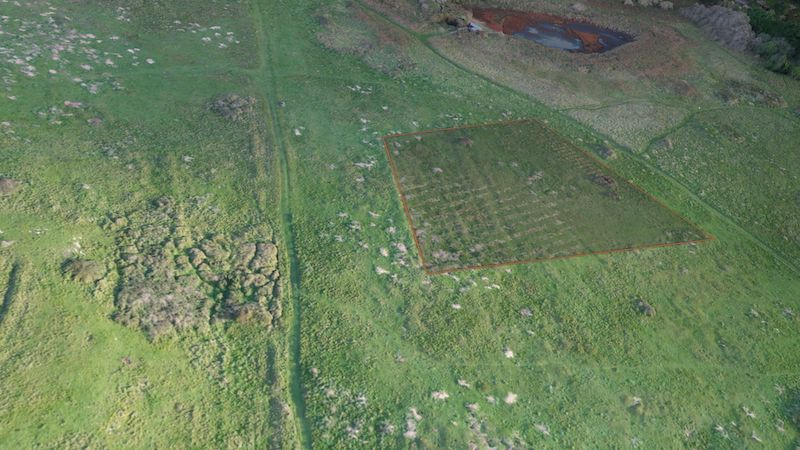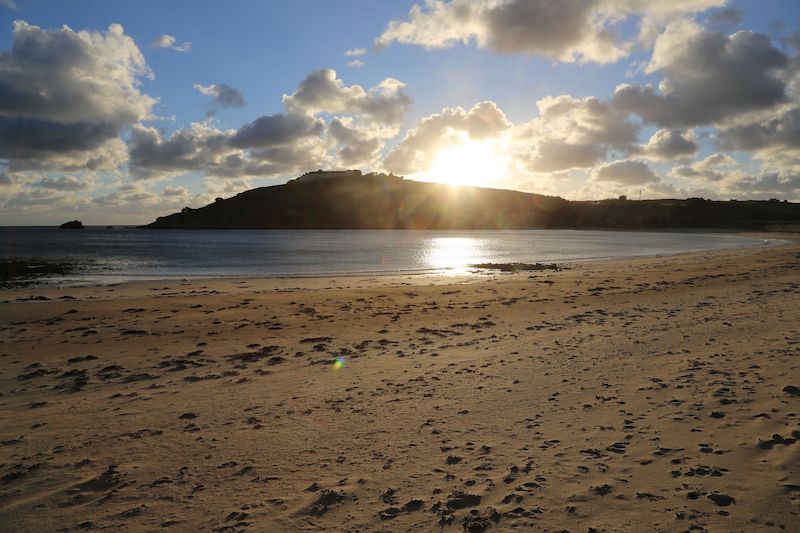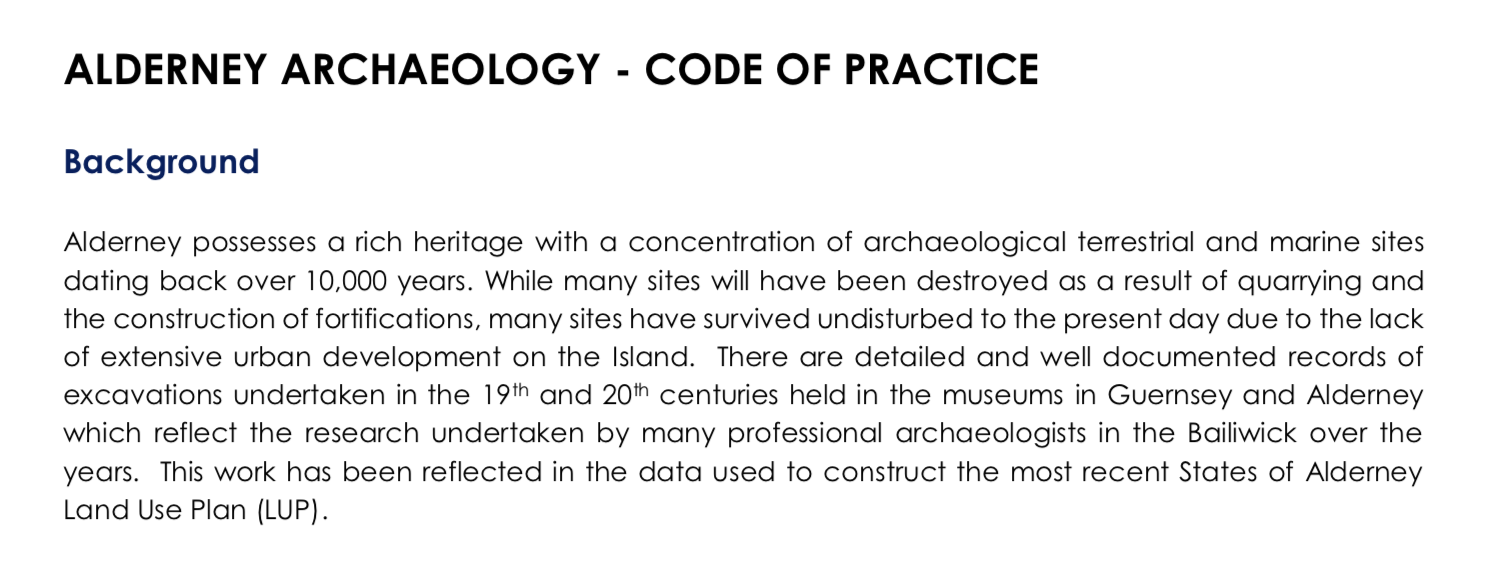


The archaeologist who has been working on the four camps in Alderney featured in a documentary said it was the hardest project of her career but a Jewish historical group denounce her work as "appalling".
Professor of Conflict Archaeology and Genocide Investigation at Staffordshire University, Caroline Sturdy Colls, has been working on investigating and surveying the Alderney camps since 2010.
Professor Sturdy Colls (pictured above) was on the island in 2017 to conduct surveys as part of the documentary aired on the Smithsonian Channel, Adolf Island. The documentary is being repeated on the channel this evening (27 June).
Scenes in the documentary reportedly depict States of Alderney representatives as acting obstructively and denying the film crew and archaeologists access to conduct surveys on graves and camp Lager Sylt and excavations into what were the camp latrines.
While the numbers and exact location of the graves are contested it has been known since the end of the second world war that prisoners from Operation Todt and "volunteers" from Europe were housed - and died - in camps on Alderney. These were known as Lager Sylt, Norderney, Lager Borkum and Lager Helgoland.

Pictured: Drone photogrammetry data showing the area of the former forced and slave labourers’ cemetery from Adolf Island.
Specialist surveying equipment was used once permission was granted including drone technology which all led to the first mapping of the Lager Sylt site since 1945. Lager Sylt was one of the main focuses of the documentary being identified as being repurposed from a work camp to a concentration camp.
"The SS arrived in early March 1943 - the Death Head unit it's called, they were responsible all over the world for guarding concentration camp prisoners and they bring with them just over 1000 members of an SS construction brigade who'd previously been working elsewhere in Germany or had been housed in concentration camps in Germany and they bring them to Alderney and house them in Sylt," Professor Sturdy Colls told Express.
According to Professor Sturdy Colls the purposes of the documentary were to bring some of the 9-year-long research project to a new audience encompassing historical findings from declassified archives.
"One of the things is being able to identify lists of names of people who definitely died there, because they have death certificates, who have no known grave," she said.
"Although the system of burial on Alderney looks very organised because they have two marked cemeteries with rows of graves, actually having then compared all the death certificates and all the burial records basically the cemeteries were for show, to make it look like they had this very ordered system when actually it was very chaotic," she said.
Watch: Trailer for Adolf Island.
Some of the bodies buried on Alderney were exhumed in what Professor Sturdy Colls called a "haphazard" way in the 1960's. Members of the German War Graves Commission "controversially" exhumed the bodies of prisoners and brought them to France with those of German Officers who died while on the island.
The German interest in events which happened in the island was not limited to the post-war period, according to Professor Sturdy Colls' research.
"Often the crosses in the cemeteries were taken down and the Germans were told to make the cemeteries look smaller because the death toll was too high. Even the Germans investigated them to say, the German administration were saying too many people are dying in Alderney you need to do something about this," she said.
There are two cemeteries on the island which Professor Sturdy Colls said it is suspected were downsized as a ruse and other sites outside of the cemetery boundaries which are suspected to have contained - or still contain - prison burials. According to Professor Study Colls' research some of the unmarked graves could belong to those whose death certificates give Jewish identities.

Pictured: A still from the documentary showing parts of Alderney.
In the wake of the first airing of Adolf Island The Jewish Chronicle reported that Professor Sturdy Colls had been accused of “exploiting Jewish history”, having “broken agreements” with the Jewish British history group Jtrails.
"I've never asked for permission to excavate a grave and I would certainly not do it without those permissions being in place so those claims are false," said Professor Sturdy Colls.
"It was possible that some of the victims that died could have been Jewish, we do have lists of names of people who died and some of them were Jewish so there's an ethical debate there about what should happen in the future in regards to the burials, that's a discussion I'm having at the moment with various national, local and international organisations in light of my findings," she said.
Mr Roberts said this suggestion about reburials was "out of the question".
"At the end of the day it is down to the Chief Rabbi and this certainly hasn't come from him.
"There's an article in the Guardian archive which talks about the "discoveries" made in the documentary from the day after the surrender, we've known about these discoveries since day one. The definitive position is that these graves should not be disturbed, they should be the resting place for eternity," he said.

Last year the States of Alderney brought in a code of practice to specify on how best to apply for permission to conduct archaeological field work in the island (pictured).
"I've actually worked at 50 [Holocaust related sites]. I will say that Alderney has been the most difficult in terms of getting permission, a part of that was because there was no formal permissions system in place.
"I haven't put in another application to do any work but I think certainly some of the issues perhaps have subsided, the States have got policies in place now.
"If we're not repeatedly revisiting and refreshing our knowledge then we're losing the people's stories who were sent there and that's a key part of this work is to try and focus on people and their stories, over the years there's been a lot of focus on the military aspects or perhaps someone who didn't want to talk about slave labour and I think their stories have been lost so I think it's really important that we try and tell those stories," she said.
Comments
Comments on this story express the views of the commentator only, not Bailiwick Publishing. We are unable to guarantee the accuracy of any of those comments.